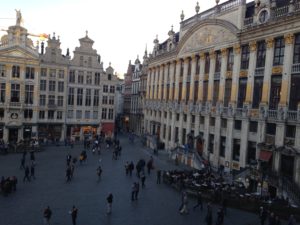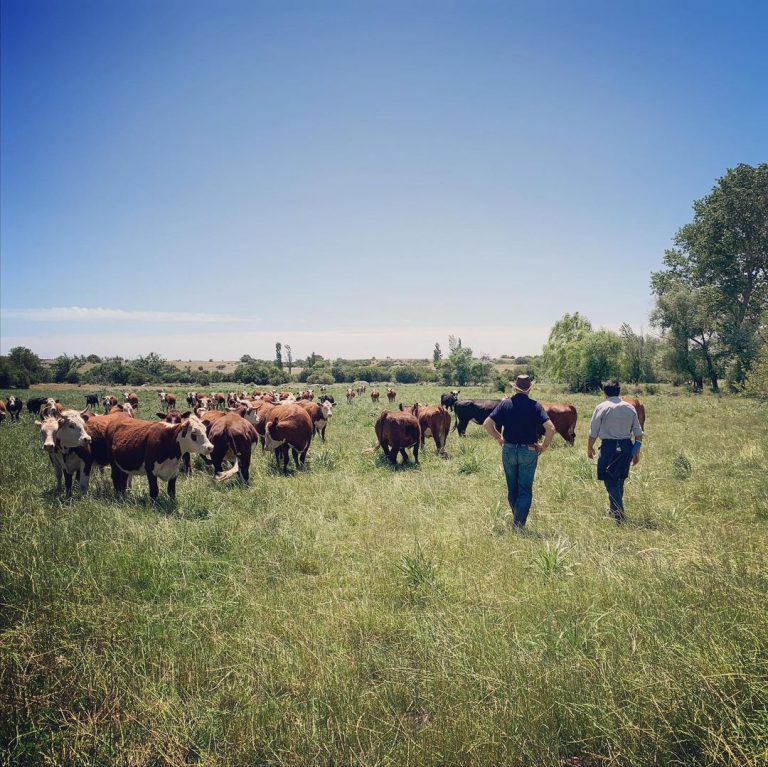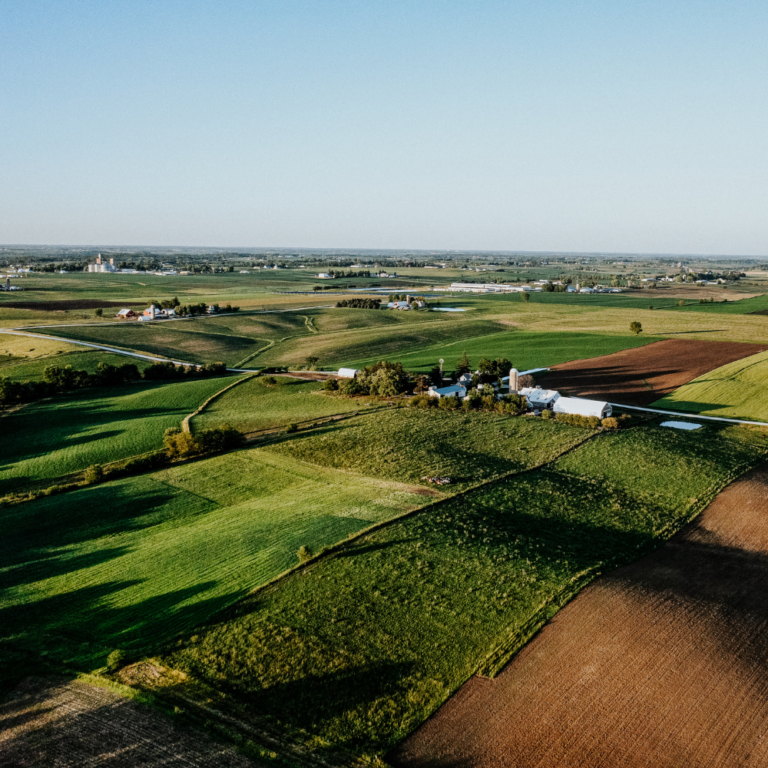Keynote talk No Till Winter Conference 2018, Wichita, Kansas. 2018
Allan Savory.
Thank you for the opportunity to talk about serious, and real hope, for future generations. Although I will begin with the realistic and dangerous situation of today, this is a talk of hope in a world of great confusion, conflicting expert views and leaderless chaos. It begins and ends with agriculture.
Agriculture is not simply crop production. Agriculture is the production of food and fibre from the world’s land and waters. Crops, livestock, forestry, fisheries, wildlife are all involved. Almost the entire planet is involved in agriculture, with arable land constituting about 20 % of the Earth’s land area or 6% of the planet’s surface – 94% being the rest of agriculture. For ease I will refer mainly to farmers today because most of you are.
Without agriculture we cannot have a city, church, university, government – it is the foundation of civilization, which is city-based by definition. The fate of civilizations follows the fate of agriculture.
Today most farmers face severe problems – while corporate agriculture and stock markets thrive artificially, society and the bulk of the world’s farmers bear the cost – increasing droughts, floods, nutritional health problems, mega fires, emigration, dwindling rural communities, bankruptcies, suicides, aging farmer structure and more. All of this culminating in global desertification and climate change.
As farmers you have always based agriculture on the biological sciences, even thousands of years before we had a single scientist. This you did by domesticating and developing all the fruits, vegetables, grains, poultry, horses, cattle, sheep, goats, etc. from wild stock. You made civilization and science possible. Without question, farmers have been right – agriculture must be based on the biological sciences, living soils — high biodiversity and stability. Agriculture should not be an extractive industry like mining. However mainstream agriculture is not based on the biological sciences, but on massively funded corporate marketing of oil and technology. As a result, if we look at published figures of soil destruction alone we see that agriculture is an extractive industry — mining the world’s soils — and it is the most destructive extractive industry ever – producing over 75 Billion tons of dead eroding soil every year. More than twenty times the amount of food we need to feed every human alive today. No mining of coal, oil, or any other industry has ever approached this level of destruction.
Currently about 2% of society (like many of you) favour science-based agriculture. I will refer to us as the 2 percenters for ease. And about 98% of Americans (and consequently government policies) support agriculture based on marketing oil and technology. Many people are not aware that fertilizers, herbicides, insecticides, etc. come from coal, oil or gas.
But what we, the 2 % support – sustainable, organic, grass-fed, permaculture, regenerative agriculture – are concepts we need to dissect and understand if we are not to repeat the fate of civilizations throughout history.
Over thousands of years, all agriculture was organic with grass-fed animals. We had not yet exploited fossil resources and did not have todays machinery and chemicals. Almost every practice being re-discovered or promoted by us 2% percenters today was practiced thousands of years ago. I have been unable to learn of any practice that is actually genuinely new – except for Holistic Management, which as I will explain is not a cropping practice. We need to heed the fact that what we today call sustainable, led to the failure of many civilizations in all regions of the world
Where we used to face regional failure of cities, today, with the magnitude of global desertification and climate change, we now risk global failure of civilization. If we do not develop genuine solutions our decedents face a future of horrific violence and suffering with the death of billions of people at some point. Clearly this is not our intention so we had better pay attention or we offer no hope in No Till, or any other practice we believe sustainable.
As I said, this is not a doomsday talk. However, people by and large do not change until change is forced on us by clear realization that we face tragedy and our backs are to the wall. For this reason, I have spelled out where we stand today so that you can reason for yourselves, because no government, university, political party or organization ever can.
Fortunately, involved in the No Till movement, you have already chosen to change as agricultural leaders. So, let’s now see if that change is enough, or what jointly we could do to turn all of this around.
First, commonsense. Any time we have a problem, if we deal with the symptoms and not the cause of the problem we guarantee failure. I think we can all agree on this truism.
Fortunately, we believe that we know for certain what is causing desertification and climate change. Just as we once knew for certain that the world was flat – we were wrong then, and we are wrong again – as I will explain in simple unarguable terms. Our certainty is that desertification and climate change are caused by livestock, coal and oil. And the media, celebrities and billionaires help our institutions – universities, governments, environmental organizations spread this belief relentlessly.
While research, and historical evidence, show us that human organizations or institutions are almost incapable of commonsense, individuals and the public are capable of high levels of commonsense – as the American public did in bringing the Vietnam war to an end against the opposition of powerful institutional forces. Or as public opinion did in Britain to bring about change in the Royal and Merchant navies after a million sailors had died from scurvy, when the remedy had been demonstrated 200 years before. In the US today even a child can see that producing oil, to produce corn to produce fuel is stupid – but our institutions support this insanity. So as individuals whether or not you also work in a farmer’s or environmental organization, university or government agency, let’s use our commonsense.
Livestock are a resource. Coal and oil are fossil resources. These resources will be needed for centuries to come to produce many products. Even a child knows that no resource can cause a problem, let alone the greatest problem facing humanity. It is management that runs livestock in many ways that lead to desertification over centuries. It is management that places millions of animals in inhumane force-fed-factories at great environmental, health and economic cost. It is management that calls fossil resources – fossil fuels — and burns them at a destructive rate. No act of Nature is causing either man-made desertification, or rapid climate change. Logically, and I believe unarguably, it is management and management alone that is the cause of both desertification and climate change.
I do not know how to put it to you more clearly – if we do not change today’s management causing climate change we offer little hope. However, if we do change our management – at farm and policy level – we can offer more hope for future generations than ever was possible throughout history.
Before we can do that, we have some problems to overcome. Almost no one in society or in agriculture is calling for a change in management. Even we –the progressive 2% — are mainly calling for change in cropping practices – but under the same management that led those practices to cause the failure of past civilizations. So, we have work to do putting our own house in order, and throughout society.
If management is the cause, what in management needs to be changed?
If I am farming and decide to stop plowing and practice No Till cropping I am changing a practice but not changing the underlying management – how my actions are decided and in what context.
Rebecca Costa, who wrote The Watchman’s Rattle, studied past failed civilizations. She concluded they did not fail only because of their agricultural practices, but because they could not address the complexity of rising population and deteriorating environment. They turned away from knowledge (science) and toward sacrifice and faith, shelving the problems for future generations. So what is this “complexity” that they could not manage?
Here is a simple way to understand that word. If we look at everything we make or build – from tooth brushes to computers, satellites, churches to hospitals, electricity from coal or from wind and sun etc. every single thing we make, what do we see? We can make nothing without technology in some form, and expertise. I have no idea how to make even a simple watch or overcoat. Nothing we make is self-organizing and capable of continuing when a part is broken, missing or source of energy runs out. Nothing we make, even space vehicles, involves the concept of complexity, although they can be very complicated. With the things we make we are experiencing ever increasing successes – there is no end in sight to the marvels of technology and ingenuity. Most hope for the future is built on technology and things we make.
Now let us look at all the things we manage – agriculture, churches, economies, human organizations, governance – management at any level from household to international organizations – we see a different picture. What we manage does not always involve technology, organizations and all in nature that we manage do not stop working if a person dies, or a species is wiped out. Things carry on but in changed form because of self-organizing complexity. In Systems Science everything we manage is defined as a self-organizing complex system. It is in this area of our lives – management involving self-organizing complexity – that we are running into ever more problems like one tsunami after another hitting us. Our successes are at best short term and all too often followed by unintended consequences and yet further problems.
Management always involves a web of social/cultural, economic and environmental complexity – this management complexity as I will call it is inescapable from managing our lives to governance. It is this complexity of self-organizing systems we have never been able to manage well.
There is a simple reason why we do not manage the web of complexity well and it is because management is reductionist – and the real world functions holistically and is complex. This we discovered recently – in the early 1980’s almost by accident as often happens.
In about 1985 I was talking to a Brazilian engineer engaged in building their new capital city from scratch. After discussing his work, he asked what I did. I said it was difficult to explain briefly but I was working on the greatest problem facing mankind – the failure of city-based civilizations because of environmental destruction. He asked how I was doing. I replied saying we had a major breakthrough and were seeing encouraging results – he then shook me by saying “It must be very simple”. He went on to explain that whenever humanity had a difficult problem the solution was always simple. And so it is, as you will see.
Let me explain why management is, and has always been, reductionist.
Management at any level – ground to policy – involves taking some action and using some tool. Two irrefutable facts – in all management you take action to achieve some objective and you use some tool.
Before we take any action, we need a reason, or context for that action. If, for example, I intend to light a fire. You have no idea if this is wise or foolish. Only when you know my reason or context for lighting a fire can you judge it wise, or stupid and likely to lead to unintended consequences.
We always do have a reason for our actions. I can bet that every one of you does not take any management action without a reason. Working with thousands of people over half a century, I have come to realize that in managing we try to improve our lives – and universally the reason for our management actions or objectives falls under one of two headings:
- To meet a need or desire – buy a coat, a car, take a holiday, make a profit, grow potatoes, practice No-Till, plant trees, raise chickens, get an education and on and on the list goes of needs and desires we want to achieve.
- Secondly to address a problem – present or perceived – kill weeds, stop erosion, prevent drug use, control immigration, preserve a dying out species, secure borders, mitigate climate change, deal with poverty, violence, droughts, mega-fires, floods- and on and on the list goes. And most important is that in the case of policy development the reason or context is to address a problem – current or foreseeable.
It was not until I was President of a political party leading the opposition in Parliament that I came to truly understand that about all that governments do is to form policy to address problems. And from those laws and regulations.
What can we call such management other than reductionist? When we reduce the unavoidable web of social, cultural, economic and environmental complexity to the simplicity of meeting needs, desires or solving problems – as we do every day – that is reductionist management. And reductionist management, just as it is today, was the same in all cultures through all ages – whether we look at Roman times or much earlier. It has been the universal management by humans for thousands of years I believe to achieve objectives meeting our needs, desires or addressing problems.
As we learned with my lighting a fire example, any management action or objective in which the reason or context is too simple or inadequate is likely to lead to unintended consequences. So common are unintended consequences in management that economists jokingly refer to the “Law of Unintended Consequences” – and many a true word is spoken in jest.
Some scientists in integrated interdisciplinary teams argue that their management is not reductionist. Teams in which every member is an expert fully aware that the policy they are developing will have social, environmental and economic consequences – hence the interdisciplinary team to consider all aspects from expert perspectives. How can you possibly call this reductionist they ask angrily?
However, if you observe you will find the interdisciplinary team inevitably and always reduce the web of complexity to the problem being addresses as the context for the policy – be it drug policy, war on weeds or terror or any other policy.
We cannot escape it you and I or any other person. The management we have grown up with is reductionist. It is I am afraid universal – and has been for many thousands of years.
Once you are aware you will begin to recognize unintended consequences almost everywhere you look – war on drugs increasing drug use and spreading violence. War on weeds never killing out any weed while poisoning our water and bankrupting farmers. Vietnam policy that steadily expanded the war, the present war on terror spreading terror at phenomenal cost to society. The latest UN policies to deal with poverty, droughts, emigration and more, expressed as 17 Sustainable Development Goals, mostly addressing the symptoms of desertification – a predictable consequence is that violence and emigration to Europe will increase, as will desertification and climate change.
And of course, USDA agriculture policy endangering the US more than any foreign power ever could – when I came to the US I could not understand why Americans feared the USSR more than the USDA. It is USDA policy that results in America’s greatest annual export being dead eroding soil – outweighing all corn, beef, timber, machinery and other exports. When I came here the Soil Conservation Service was trying to get citizens to understand the magnitude of soil destruction – so they explained it at the time as trainload 116 miles long of railcars full of soil leaving the US every day. Historically armies change civilizations but farmers destroy them never to rise again.
Let’s look at how we might offer hope for future generations
A solution to how we might manage the web of complexity that is agriculture more successfully was discovered, almost by accident, recently. This occurred when new scientific insights made the development of the Holistic Management framework possible.
What we discovered was that we can avoid the trap of reducing the web of complexity to the dangerous simplicity of meeting our needs, desires or solving our problems in any management situation, by first developing a single holistic context to better our lives – which ultimately is the aim of management. We then use this single, all-embracing, holistic context in our management to improve our lives through our many objectives and goals – as before, meeting our needs, desires or solving problems exactly as we have always done. The difference now is that while we practice No Till, permaculture, organic, or any other practice to make a profit, or whatever aim we have, we do so in a holistic context. A context or reason for actions we have developed that truly reflects what we, and future generations, want.
The holistic context is a new concept not in any branch of science, philosophy or religion. It is not remotely like a mission statement, goal or vision. It is a statement of how we want our lives to be. This is based on our culture and values. This life statement is then tied to our life-supporting environment. A statement on which there is total agreement with no compromise – this is a feature of Holistic Management that makes it a powerful process for resolving or avoiding conflict, so common with reductionist management. It is my belief that most conflict in the world is caused, as is desertification and climate change, by reductionist management and our conflicting objectives, while almost all humans are wanting the same thing – stable peaceful lives.
Let me read to you a simple generic holistic context I use when reading any policy, or looking at any management, in a new situation where people have not yet developed their own holistic context. We want stable families living peaceful lives in prosperity and physical security while free to pursue our own spiritual or religious beliefs. Adequate nutritious food and clean water. Enjoying good education and health in balanced lives with time for family, friends and community and leisure for cultural and other pursuits. All to be ensured, for many generations to come, on a foundation of regenerating soils and biologically diverse communities on Earth’s land and in her rivers, lakes and oceans.
People in all cultures resonate with such a holistic context.
Management then proceeds as before achieving our objectives -meeting needs, desires or solving problems. We still use the same considerations we have always used – expert opinion, past experience, cost, cash flow, laws, regulations, research results. However, when managing holistically, if there is any doubt at all we use a series of context-checking questions. These ensure that our actions are in line with the holistic context and thus socially, economically and environmentally sound – likely to succeed and unlikely to result in unplanned consequences.
Holistic Management involves opening our minds to all science beyond beliefs that today have assumed scientific validity. This includes accepting the use of animals in place of machinery and chemicals to solve the biological aspects of desertification and climate change.
I will spend time on this subject tomorrow, but for the moment would like to point out that management, as I pointed out earlier involves an action and the use of some tool. And when we look at global desertification playing a major role in climate change, there is simply no tool in the reductionist management framework that can sustain the cycle of life in grass plants over about two thirds of the world’s land. These are the vast regions where the rainfall is seasonal and humidity erratic, were soils, soil life, plants and animals co-evolved including billions of large grazing animals and pack-hunting predators. We have no option but to include livestock as a tool with a change to Holistic Management to seriously address the major biological aspects of desertification and climate change. I know I am criticized for stating that there is no other option by to use livestock and the Holistic Planned Grazing process, but no scientist in any discipline has in any way indicated where my logic or science is flawed in over fifty years and most important no scientist has in any way suggested how technology might solve the biological aspects of desertification or climate change.
Results.
I am told this is a “show me” state so let’s talk about results. Tomorrow I will show you amazing changes on the land with a change to Holistic Management, but now will talk about what we have learned concerning policy development so vital to our future.
In the early 1980s far-sighted officials in the USDA commissioning me, over a two-year period to put some 2,000 officials through a week of training in the use of the holistic framework. They came from all land management agencies, World Bank, USAID and US Fish & Wildlife, as well as faculty members from agricultural universities. Analyzing hundreds of policies with the holistic framework, they concluded all their own policies would fail and lead to unintended consequences. This was because in every policy the web of complexity was reduced to addressing a problem and never the cause. One group made a statement that we published – “We now recognize that unsound resource management is universal in the United States.”
Similar exercises, but with smaller samples, led to similar conclusions in India and Lesotho.
In Zimbabwe I had to opportunity to work with 35 Members of Parliament from opposing parties in great conflict, making Republicans and Democrats here look like kids playing in the sand pit. I began by reminding them of a speech by their President, in which he said “We do not have a bigger problem than our rising population and deteriorating land. We politicians do not know what to do. We can only take the advice of our advisors, but when it goes wrong we get the blame.”
I pointed out we had none of their advisors and described how we could use the holistic framework to develop an agricultural policy (agriculture and land being the most contentious issue in the country). Hostility and mistrust prevailed until we had a unanimously agreed national holistic context to guide policy. At that point everything changed and soared above politics, tribalism and racism. With a holistic context with which every Zimbabwean would resonate, it was simply 35 Zimbabweans working together.
Had anyone raised any political point of view they would have looked stupid, as would any lobbyist. By the end of the workshop we had an agricultural policy if implemented that the world dreams of – no need for third party endorsements such as organic or sustainable — because all food would be nutritious and growing on regenerating soils. A policy releasing the creativity of farmers who developed all grains, vegetables, domestic animals that made civilization possible, before there was a single scientist. What was most telling was that the knowledge needed to develop sound policy was all in the room.
The same thing will be possible in America just as soon as it makes sense to enough of the public that policies should be holistic and no longer reductionist. At that point agriculture will soar above party and corporate politics to the national concern that it is.
And what is most important for the 2% of us favouring agriculture based on the biological sciences, is that we will be at the policy table as equals with the most powerful corporations, and corporate- grant-dependent academics.
One published result of Holistic Management that is significant was a study by Dr Stinner and colleagues at Ohio State University. They studied early adopters of Holistic Management across the U.S. from California to Florida and found that they averaged 300% more profit. Over about the same time period in the same markets some 600,000 farmers left the land bankrupt, and suicide was the leading cause of agricultural deaths.
I don’t know what more to say. For the first time in history we are addressing the cause of centuries of failed agriculture and civilizations. I am not aware of a single case where Holistic Management has been practiced and not led to improvement. I am aware of thousands of farmers who failed to practice after getting training. No different from the thousands of people who annually resolve to eat less and exercise more knowing it will improve their health, but do not do so.
Conclusion.
Let me conclude with where you personally fit – why so much depends upon each and every one of you. Change requires leadership, but history and science teach us that when that change involves new counter-intuitive insights – not already widely believed in society – leadership simply cannot come from any politician, organization or institution. It can only come from people, like many of you, who lead change till public perception changes followed by our institutes changing. This by the way is not my opinion but what I learn from the social research on change.
So what can you do, beginning tomorrow, to bring about the one thing that offers more hope of truly regenerative agriculture than anything in the long history of mankind? What can you do to bring about the change in management from reductionist to holistic?
You are already taking a leadership role by supporting No Till — that in itself is a big change in mainstream thinking. However, No Till, like all other agricultural practices – organic, grass fed, permaculture or any other – is a change in practice that is however still under the same management causing climate change. So how can you go the extra mile to actually change the underlying management? To change the way that you manage the web of complexity surrounding any agricultural practice?
First, change your own management – Be the change you expect – as Gandhi famously said.
Holistic Management will immediately make all ecologically sound agricultural practices more lastingly successful that they ever could be under reductionist management and policies.
You will not be alone. You will have vast support from many others in the growing global network of locally led and managed Holistic Management hubs, including the first university-led hub in Michigan. Hubs in which farmers, academics, government agency staff, ranchers, pastoralists and many others are starting to lead. The Savory Institute is but one node in this growing network of independent hubs and there to serve you.
Polic
We are left with policy that has to change if future generations are to enjoy any future.
Agricultural policy is not developed by individuals, but by institutions. So how can you provide the leadership needed for institutional change to developing policy in a national holistic context ? There is not a single case in history where any institution has ever changed and adopted new counter-intuitive insights ahead of a shift in public perception. From Galilleo to today. Eric Ashby, who studied such changes in Britain and America over the last 200 years, concluded that institutions in a democratic society simply do not change until public opinion changes when counter-intuitive or paradigm-shifting insights are involved. As leaders you will need to lead the shift public perception – from vilifying livestock to understanding that reductionist management is the cause of climate change.
From a TED Talk that I gave on desertification I have learned that the shift in public perception does not have to be large. That short talk, making sense to over 4 million people, has already resulted in more change than fifty years of struggle against institutional ridicule, and resistance from cattlemen’s and environmental organizations, universities and governments. Since that talk the global network of Holistic Management hubs has developed on six continents, including the first university and environmental organizations starting to change – change is finally beginning. And now you can speed that change through a simple change in strategy and the moral courage to lead.
Here I need to make a final but critical point. If we all continue our present strategy – promoting No Till and other more ecologically sound agricultural practices, we might well win given 100 or more years, but Nature is not going to allow humanity that luxury of time.
The reason why present strategy of all of us concerned 2 percenters will take many decades is simply because we are promoting different practices in a chaotic situation of short attention spans, tweets and conflicting views – No till vs plowing – Herbicides and monocultures vs polycultures – Humane grass-fed vs inhumane factory-fed animals. Real meat made from plants by animals vs artificial meat made from plants using chemistry in factories. Compost vs fertilizers. I watch this battle going on like a game of ping pong as poor ecologically literate David, faces ecologically illiterate Goliath, backed by hundreds of celebrities, billionaires and giant corporations.
Many more years of discussion and lobbying for our better practices – all under the same reductionist management — while our ship is sinking, guarantees future generations suffering and violence beyond imagination.
Commonsense tells me it is wise to change strategy. While continuing to promote practices based on the biological sciences, as you need to do in your No Till organization, I urge every one of you to also constantly emphasize that management – that is the cause of both desertification and climate change – has to change from reductionist to Holistic Management to ensure your practices do address the web of management complexity.
For many of you hearing this for the first time you will be wondering what Holistic Management looks like so to make the simplicity concrete for you let me tell the story of two results easy to understand. First a couple who came for training by me. A month later I heard from my staff that the couple had left the farm. I was so sad that we had not caught them in time to save them from bankruptcy as we had with many farmers. The staff then laughed as they were teasing me. They explained that the couple developed their own holistic context thinking deeply about the lives they wanted. Doing this they realized they did not want to be farming. They were farming because his family expected them to take over the family farm. Their first management action was to call a family meeting, lay it out and make a family decision, which was to sell the farm and all get on with lives of their choosing. That to me was an immediate result probably preventing years of unhappiness and perhaps divorce. That is Holistic Management and as you see nothing to do with any damn grazing system as ill-informed academic critics imply.
My own case. I live on a ranch in Zimbabwe close to the famous Vic Falls amongst Africa’s big game in the wild – but over 4,000 farms and ranches have been taken by the government and given to politicians, judges, soldiers and supporters of the government – and yet my wife and I am still there on the land living the lives we desire. How? Only through managing holistically. Years ago my wife and I developed our holistic context. As usual 100% how we want our lives to be, 0% how to do it as no action can be in the context for all actions. When I looked at the reality of Zimbabwe after years of civil war, I could see that what mattered was living on the land, working with poor people and enjoying the wildlife around us. Ownership was not confused with management. It was the result of a past action to buy the ranch. Looked at in our holistic context it was an impediment. It was clear that by holding onto ownership as a white person with black racist government, I would lose everything, but by giving it away we could preserve all that was important to us. So I gave the land to the people through a trust with the Chiefs as trustees with my wife and I. Friends said I was insane to just give away millions of dollars worth of land – but today they ask how I could see so far ahead so clearly. I could not but I could make management decisions holistically in context with all that was important in my life.
I hope these two simple examples indicate how quick and life-changing Holistic Management can be. How it helps ensure management does actually improve your life as is the intention. As pointed out earlier, with just one week of training thousands of officials could not only see the flaws in their own policies but how to remedy those policies.
For thousands of years we did not know how to fly. Many men died trying and then on one day the Wright brothers learned how to fly. Within 70 years there was a man on the moon as the creativity of ordinary people was released. For thousands of years management has been destroying civilizations and we did not know how else to manage. Now we do know how to manage holistically. Now we do know livestock are essential to addressing climate change and the global regeneration of damaged soil life.
Because most people are good and most people are doing their best. And because there is an immense amount of knowledge on our farms, in our universities and government agencies, just as soon as management and policy are holistic we will see creativity released as never before –and the human spirit will truly fly, offering great hope for future generations led initially by farmers, just as civilization was made possible by farmers, so too civilization will be saved by farmers.







